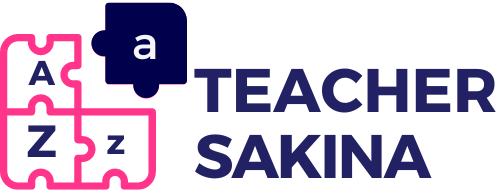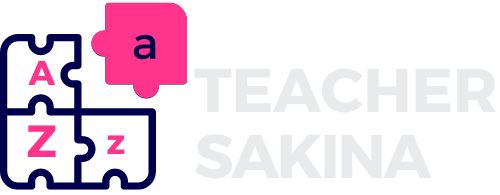Choosing the right college is one of the most important decisions in shaping your future. Whether you’re searching for colleges near me, community colleges near me, or considering prestigious Ivy League schools, there’s a lot to explore. This article will guide you through different types of colleges, key programs like phlebotomy and associate degree programs, and how to find the perfect fit for your goals.
Types of Colleges: Exploring Your Options
The United States boasts a wide variety of colleges, and understanding the differences can help narrow down your search. Let’s take a closer look at the different types of colleges available.
Community Colleges
Community colleges offer two-year programs that often lead to an associate degree. These colleges are perfect for students who want to save money or explore their academic interests before transferring to a four-year institution. Plus, there’s likely a community college near me, making them convenient and affordable options.
Some of the most common programs at community colleges include:
- Phlebotomy
- Nursing
- Computer Science
- Business Administration
Furthermore, community colleges are excellent choices for working adults and part-time students. They often provide flexible schedules that accommodate various lifestyles.
Four-Year Colleges
On the other hand, four-year colleges offer undergraduate degrees, such as a Bachelor’s Degree, and provide a traditional college experience. These institutions vary in size, with some offering more intimate learning environments, while others may resemble large universities.
Many students start their search by looking for colleges near me to find accessible options close to home. However, you don’t need to limit yourself by location. Colleges across the country offer diverse programs and unique campus cultures that could be the right fit for you.
HBCUs (Historically Black Colleges and Universities)
If you’re considering an education that celebrates Black culture and history, an HBCU might be the perfect fit. HBCUs have a long-standing tradition of academic excellence and support for African American students, offering a range of undergraduate and graduate programs.
Some top HBCUs include:
- Howard University (Washington, D.C.)
- Spelman College (Georgia)
- Morehouse College (Georgia)
- Hampton University (Virginia)
These institutions are committed to providing a culturally rich and inclusive environment for their students.
Ivy League Schools
For students aiming for the pinnacle of academic prestige, the Ivy League schools are often at the top of the list. The Ivy League consists of eight private colleges in the northeastern U.S., known for their rigorous academics, accomplished alumni, and exceptional faculty.
The Ivy League includes:
- Harvard University (Massachusetts)
- Yale University (Connecticut)
- Princeton University (New Jersey)
- Columbia University (New York)
- University of Pennsylvania (Pennsylvania)
- Cornell University (New York)
- Brown University (Rhode Island)
- Dartmouth College (New Hampshire)
While these schools are highly competitive, they also offer extensive financial aid to qualified students, making them accessible to a broader range of applicants.
Specialized College Programs
In addition to choosing the type of college, you’ll want to explore the specific programs offered. Whether you’re interested in phlebotomy, earning an associate degree, or applying to an Ivy League school, there are programs tailored to different career paths.
Phlebotomy Programs
For those interested in entering the healthcare field, phlebotomy programs provide specialized training in drawing blood for tests, transfusions, donations, or research. These programs are often offered at community colleges, technical schools, and some hospitals, and they can be completed in less than a year.
Many students choose phlebotomy because it’s a fast track to a healthcare career, offering a good salary and job stability with minimal time commitment. You can find phlebotomy programs near me at your local community colleges or vocational schools.
Associate Degree Programs
Associate degrees are two-year programs that allow students to enter the workforce quickly or transfer to a four-year college to complete their bachelor’s degree. Community colleges across the U.S. offer associate degrees in various fields, including:
- Nursing
- Business
- Computer Science
- Criminal Justice
- Engineering
If you’re looking for an affordable way to get a head start on your career or continue your education, an associate degree is a great option.
Finding Colleges Near You
Searching for colleges near me or community colleges near me can help narrow down your choices based on location. This is especially helpful if you want to stay close to home or commute to school. Many students use search tools and college finder websites, such as the U.S. Department of Education – College Navigator, to locate nearby institutions that offer the programs and degrees they’re interested in.
In your search for the right college, consider the following factors:
- Tuition: Make sure you understand the cost of attendance, including tuition, room and board, and any additional fees.
- Location: Some students prefer the independence of attending college far from home, while others may want to stay nearby.
- Program Offerings: Choose a school that offers your intended major or program, whether that’s phlebotomy, associate degrees, or a field-specific bachelor’s degree.
- Campus Life: Explore what student life is like on campus, including clubs, sports, and other extracurricular activities.
Online Learning Opportunities
With the rise of online colleges, students now have even more flexibility in how and where they learn. Many traditional colleges and universities offer online programs, allowing students to earn their degrees remotely. This is particularly useful for working adults, parents, or those with busy schedules.
Benefits of Online Colleges
- Flexible Scheduling: Many online programs allow you to take classes at your own pace, making them ideal for students who need to balance school with work or family.
- Accessibility: You can attend a college located anywhere in the country, even if it’s not physically near you.
- Affordability: Online programs often have lower tuition rates and don’t require expenses like room and board.
Popular online programs include business administration, psychology, education, and information technology.
College Admissions: What You Need to Know
Once you’ve narrowed down your list of potential colleges, the next step is the admissions process. Most colleges require:
- A high school diploma or equivalent
- Standardized test scores (such as the SAT or ACT)
- Letters of recommendation
- A personal essay or statement of purpose
For highly selective schools like the Ivy League and top HBCUs, having a strong application is crucial. Therefore, be sure to start preparing early, research each school’s requirements, and seek guidance from school counselors or college advisors.
Conclusion: Finding the Best College for You
Choosing the right college is a big decision, but with so many options available—from community colleges and HBCUs to prestigious Ivy League schools—there’s something for everyone. Whether you’re looking for phlebotomy programs, an associate degree, or just the convenience of colleges near me, the key is to find a school that aligns with your personal and academic goals.
Start your search by considering location, tuition, programs, and student life, and don’t forget to explore online learning options for added flexibility. With the right tools and resources, you’ll be well on your way to making an informed decision about your future.
Useful Resources
- U.S. Department of Education – College Navigator: This official government site helps users find information about colleges, programs, and financial aid.
- College Board: A comprehensive resource for college planning, SAT registration, and scholarship information.
- Niche: A platform that provides rankings and reviews of colleges based on student feedback and academic performance.
- Peterson’s: Offers resources for college search, scholarships, and test prep, helping students make informed decisions.
- National Community College Resource Center: Information about community colleges, programs, and services available to students
U.S. Department of Education – College Navigator
College Navigator
This official government site helps users find information about colleges, programs, and financial aid.
College Board
College Board
A comprehensive resource for college planning, SAT registration, and scholarship information.
Niche
Niche Colleges
A platform that provides rankings and reviews of colleges based on student feedback and academic performance.
Peterson’s
Peterson’s
Offers resources for college search, scholarships, and test prep, helping students make informed decisions.
National Community College Resource Center
Community College Resource Center
Information about community colleges, programs, and services available to students.
The College Scorecard
College Scorecard
A tool provided by the U.S. Department of Education to compare colleges based on cost, graduation rates, and post-college earnings.
Scholarships.com
Scholarships.com
A resource for finding scholarships and financial aid opportunities for college students.







